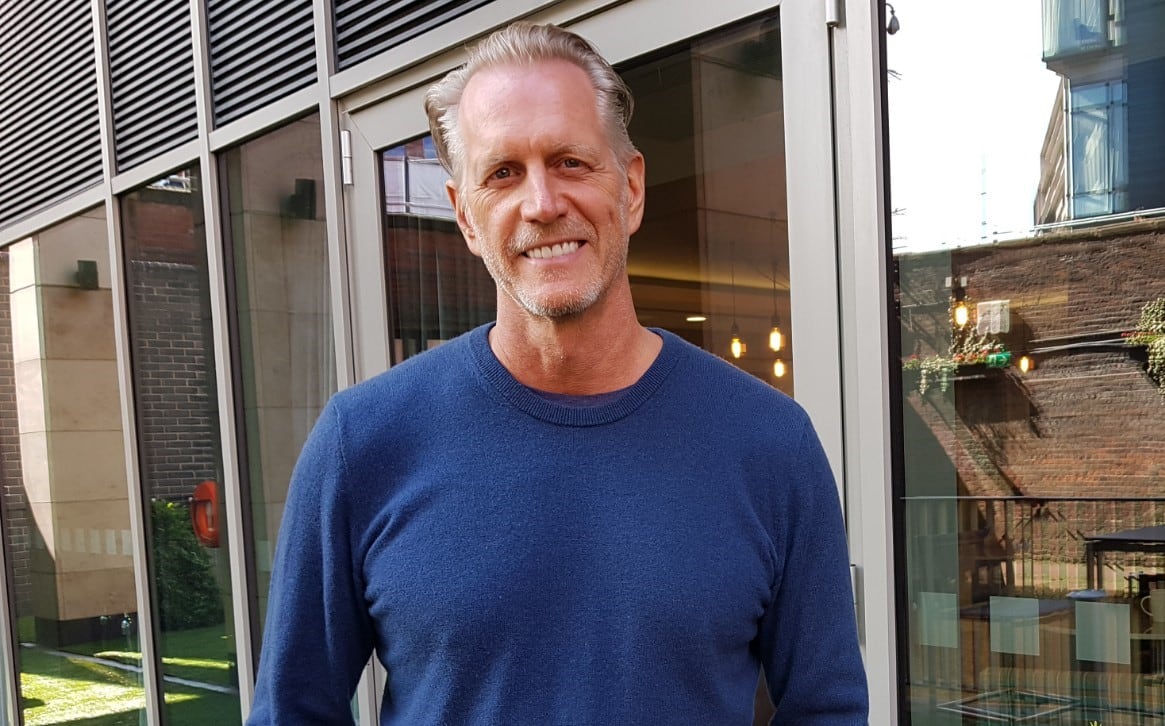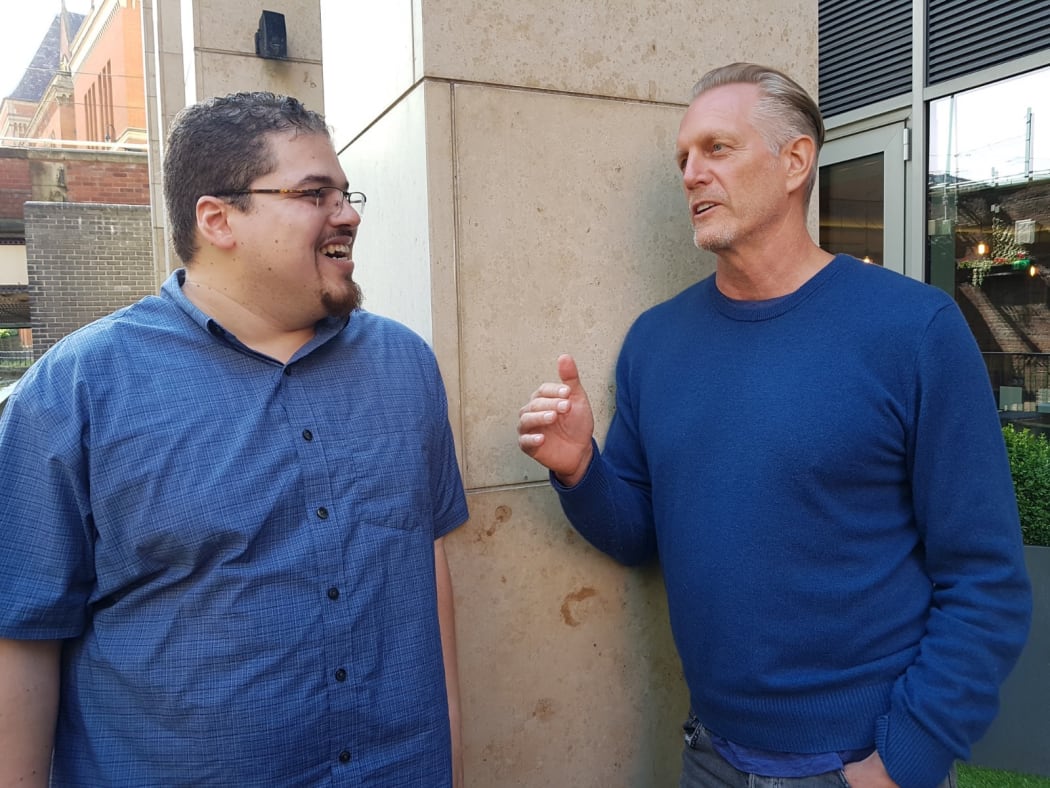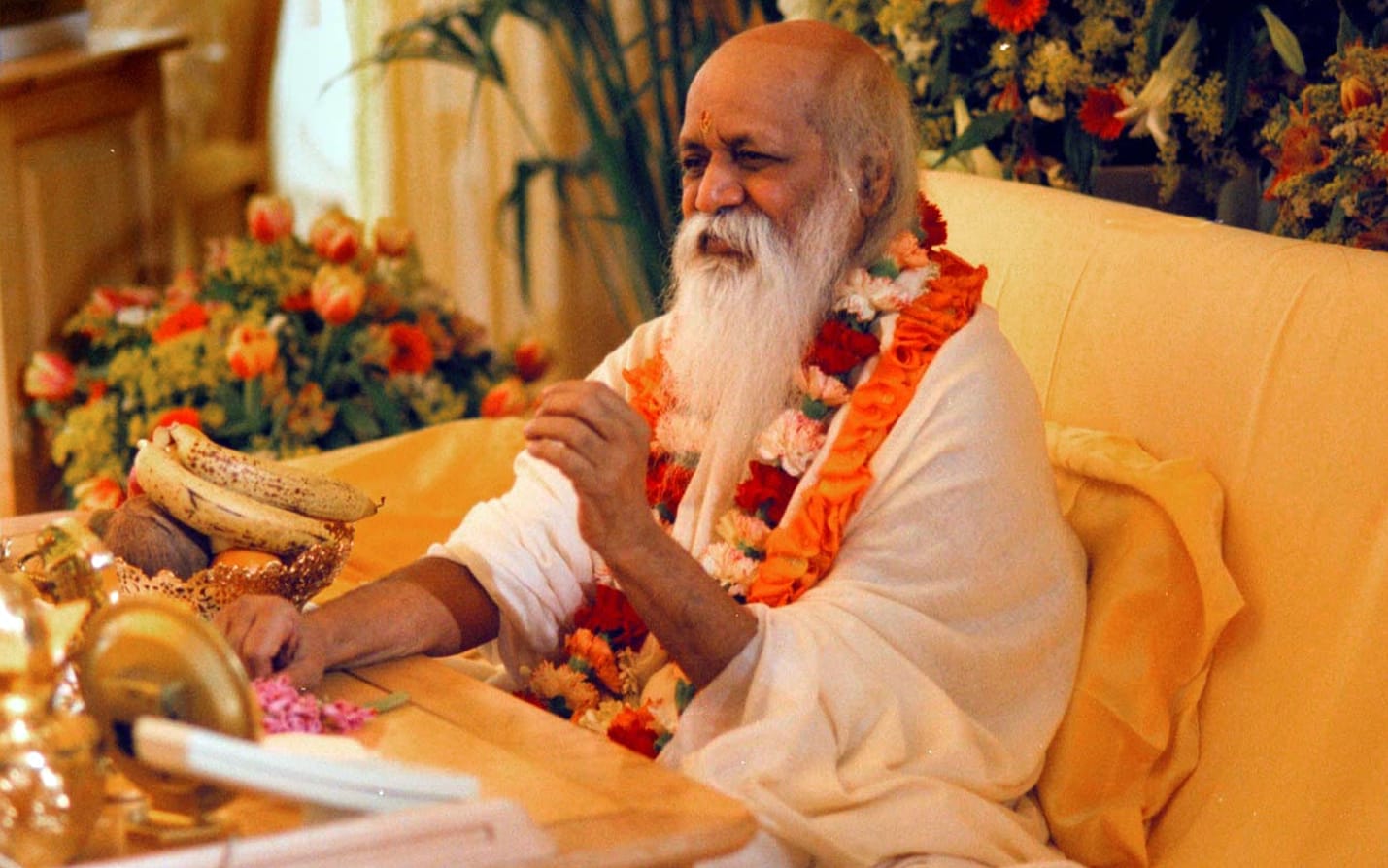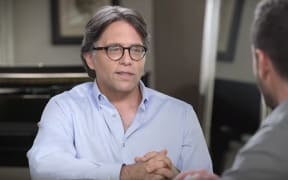By Anke Richter, guest writer
Opinion - Journalist Anke Richter had an unexpected brush with Hollywood at a cult conference in the UK - and also found that learning early on about manipulation and coercion should be as important as sex education.

Hoyt Richards at the annual conference of International Cultic Studies Association. Photo: Supplied / Anke Richter
Before the doors open to the conference room at the Holiday Inn hotel in Manchester, I bump into a well-dressed middle-aged man with dazzling white teeth who brings up images of high-end fashion and yachting around Scandinavia, but not that of a suffering cult survivor. He's Hoyt Richards, the world's first male supermodel. Like other victims of cultic abuse, and their support people and families, the charming blonde with the confident smile is attending the annual conference of International Cultic Studies Association (ICSA), this year held in England.
The still-handsome Hoyt is on a different mission than back in the '80s when he posed with Cindy and Naomi for celebrity photographers like Bruce Weber. In those years, he was also under the total control of a UFO doomsday cult called Eternal Values. Richards gave them all his earnings - about $45 million - but sued them to the ground after he finally managed to extract himself.
Today, the 57-year-old warns about brainwashing, from esoteric teachings to ISIS. He's often paired with a celebrity in his own right when it comes to understanding extremism: Steve Hassan, whose books on mind control and deprogramming have apparently saved some of the lives of the people entering the room with me. I'm the only New Zealander among more than 200 attendees, many of them Americans.
Hassan is also here, a bespectacled mental health counsellor and so far the only one wearing a tie. He's been helping people to leave destructive cults since the '70s.
"We're at a historical tipping point," he tells me. "When institutions are breaking down and there is instability and fear, then more people are vulnerable and accept those who say they have a solution."
The other person I would not have expected at an anti-cult event is a guy in a long linen robe and a lonely tuff of hair at the back of his shaved head: Anuttama Dasa, minister of international communications for Hare Krishna. He says he's been coming to the conference for 20 years, "to understand the nature of group dynamics. Sometimes people can abuse their power".
In 2000, the religious group faced a $400m lawsuit in the US for sexual, emotional and physical abuse at their boarding schools. Even though Hare Krishna is now a reformed sect, not everyone at ICSA is happy to see them. But it's an open conference, anyone can register.
"And it's better to come good-willed and be transparent than say Scientology, who have sent their spies here in the past," says Steve Eichel, a sex therapist from Delaware and president of ICSA. He knows how vulnerable and justifiably paranoid some of the traumatised visitors are. Some don't even wear their name tag.
"Rule number one: Look after yourselves," he tells everyone at the start.

Hoyt Richards talking to Nitai Joseph (formerly of Hare Krishna) at International Cultic Studies Association. Photo: Supplied / Anke Richter
ICSA has been around for 40 years and was then called the American Family Foundation, with a Christian base. Today you'll mainly find non-believers among the wide bunch of therapists, academics and experts, many of them with their own cult history, who offer help, information and workshops for leavers from various international groups and connect them with a support network.
This year, their conference is hosted by the University of Salford which offers a postgraduate course in the psychology of coercive control. A few of the masters students are here, overcoming their own cult trauma with academic research. The upcoming speakers are lecturers, some are activists or survivors - or all of the above. Speaking of Scientology, someone points out a lanky guy carrying manila folders to me who is a legend among the cult busters: author Jon Atack has been consulted in 150 law suits against Scientology and was sued by them eight times. Now he's at the helm of the Open Minds Foundation, an international think tank that wants to proof society against undue influence.
Some of the proofing and healing was done before we started: a daylong workshop offered only to former members of "high-control groups" - a description that is more fitting these days than the controversial word "cult" which is often just associated with Charles Manson or the Jonestown massacre. Eichel is even thinking of replacing the "c"-word in the organisation's name with "coercion".

The entrance to a Scientology Centre. Photo: 123RF
"Many problematic groups look harmless, are active in your neighbourhood or even your workplace," says Ulrike Schiesser who has flown in from Austria where she is a state-funded specialised anti-cult counsellor - something that's desperately needed in New Zealand. "They can form around a healer, a gym, a financial coach, and they might be just emerging." Especially the rapidly growing "conscious" field with its many new bliss-inducing ceremonies, body therapies and self-help courses is a huge unregulated market in her eyes.
How can a clearly healthy practice, say yoga, meditation or dancing, get someone on the cult conveyer belt then? "When you're not able to question the teacher or voice criticism within the group - that's a red flag," Schiesser says. "When there's an insider language. Or when something is so overprized that you have to believe some transformational shift will happen to justify the cost. And especially when it's not clear what you are actually signing up for because it's secretive."
The 91 sessions over the next three days offer a variety from gangs and human trafficking to magical thinking and narcissism. The groups under discussion range from TM (Transcendental Meditation) to Aum Shinrikyo who were behind the Tokyo subway sarin attack. It's not so much about discrediting specific "new religious movements", as sects and cults are more neutrally addressed nowadays - ICSA doesn't offer a definite list of "bad groups" but just an archive of information. It's more about understanding the dynamic of manipulation, power, spiritual bypassing, victim blaming and exploitation, even if it doesn't lead to something as extreme as a mass suicide or the grand scale sexual abuse of minors at Centrepoint. Cultic dynamics are present in multi-level marketing schemes for essential oils or in some tantra schools, among Buddhists as well as in political splinter groups. The so-called "jihad" brides and neo-Nazis have more in common than they think.

The passengers of subway lie down on a street at Hacchobori Station in Tokyo on 20 March, 1995 after a sarin attack. Photo: The Yomiuri Shimbun via AFP
It's afternoon and Hollywood enters Manchester. Cecilia Peck, daughter of film star Gregory Peck, is shooting a documentary about women under coercion. Peck arrived with Los Angeles actress Naomi Gibson who is talking publicly for the first time about her involvement with NXIVM (pronounced "nexium"), the pyramid scheme turned sex cult which also attracted Smallville star Allison Mack and the daughter of Dynasty star Catherine Oxenberg.
NXIVM founder Keith Raniere, a narcissistic psychopath, was sentenced in the US in June - a spectacular case that might set the precedent for more claims against abusive cult leaders. He kept some women like slaves in his inner circle who were branded with his initials. "Our brains are branded with Keith Raniere's philosophy," says Gibson, her face tense, her voice trembling. "That's an invisible scar that never goes away."
Gibson - slim, dark long hair, fitted black jacket - is wiping away tears when she reveals her traumatic childhood. She grew up on the Manila compound of The Children of God (now The Family). There she was raped as a five-year-old by a caregiver. Consternation is tangible in the packed room. Everyone stands up at the end of her account, applauding her. Ex-model Richards, who is planning his own documentary series, compliments her for being so brave. "Keep doing the work," he says. "You'll be fine."
"Cult hopping" is a thing I keep hearing. I'm session hopping, there is too much on offer. I learn from Yuval Laor, an Israeli researcher from Colorado and an emerging evolutionary thinker, that a personal cult situation - which can even just happen one-on-one, without a group - resembles infatuation in its initial stage. Being in a state of awe-induced limerence, as he calls it, means you are not open to any factual evaluation of your desired ideology, group or teacher, just like parents will shut you out if you criticise their child. Further down the track, this relationship often turns into what resembles the wheel of domestic violence. Now that's another ICSA talk.

Members of the prosecution in the Nxivm case arrive with documents at Brooklyn Federal Court on May 7, 2019. Photo: AFP / Timothy A. Clary
Trauma, fervour, control, seduction, dependence, rescue, cognitive dissonance: many psychological and also legal aspects are dissected here to be understood. Always compassionately, as a Swiss psychotherapist points out over lunch. Adrian Oertli is attending ICSA for the third time. "It's really touching to meet people who are willing to risk losing everything, their whole peer group, to be true to themselves." Oertli, soft-spoken and ponytailed, was part of a left-wing radical group, similar to the German RAF or Baader Meinhof gang. Now he's into Non-violent Communication (NVC). He is affected himself but helping others as part of the Open Mind Foundation, and says he's never felt more secure than here.
I'm touched as well when I listen to a panel of five young adults who all grew up in a fundamentalist Christian cult. One speaks about becoming a mother only two years after leaving, and not knowing how to discipline her toddler other than hitting him. "I had no other reference points." Her friend recounts how she enrolled at a public school, sitting next to boys for the very first time, not knowing who Beyoncé was and clutching her Bible in the breaks, feeling like an alien from another planet. Deeply lonely, utterly confused. Their reports are similar to the heart-breaking ones I heard from the young people who left Gloriavale and struggled to find their place in the outside world. I wish they could be here - or some of these experts in the field could help them out in New Zealand.

Maharishi Mahesh Yogi, once a spiritual advisor to the Beatles, died in 2008. Photo: AFP / PETER WIJNANDS
On another panel in another room, young activists speak about their legal battles against their abusive churches - one Jehovah's Witness, the other Exclusive Brethren. Those are tough stories about survival of the human spirit, against all odds. They make you angry, but they also give hope. Pretty much every ICSA session, whether it's about female genital mutilation or the questionable legacy of the Beatles' guru, Maharishi Mahesh Yogi, encourages you to question everything. "Why?" is the best prevention against political and religious extremism. Someone has written it on a white board.
Critical thinking and awareness about manipulation should be taught in schools as much as sex education, is the conclusion of most of the experts at ICSA. Psychology professor Jeremy Sherman, a Berkeley veteran at 60 and once an elder at 24 in a hippie commune - with the hair still the same - takes us down the path of "psycho-proctology": What are buttheads and how do we stop them? Pictures of Hitler and Donald Trump pop up in his power point presentation as well as terms like "woke and counter-woke". I'm intrigued by the "I once was lost but now I'm blind" syndrome. Sherman sends us off with a bang: "Research into cult behaviour and the appetite for it may well be the most important work in the universe." Boom.
At the end of the three days, I meet Hoyt Richards again outside on the hotel deck. "I love the supportive environment here," he says. No-one looks down on him or questions his sanity because the Princeton graduate once believed that an extra-terrestrial would save his life.
Richards, now an actor and filmmaker himself, is becoming a public speaker and wants to erase the myth of why people end up in cults: that it happens only to others who are weaker and susceptible.
"Because I had that stereotype about typical cult followers in my mind - 'Oh, that can't be me!' - I actually became one. Even when I was in it, I could not see it. I was that person, and everyone can be it. There is no profile."




